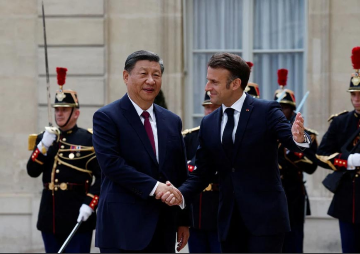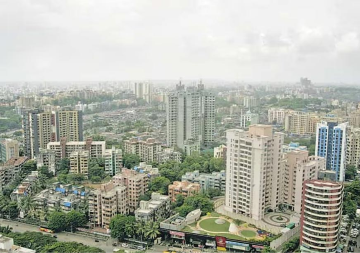The 8th edition of the World Chambers Congress kick-started in Doha, Qatar, on 25 April with a call to unlock the 12-year-old deadlock over the Doha Round. On the opening day of the event, all the international leaders, including 2000 business delegates, pledged to revive the Doha Round negotiations for equitable development. After an intense four-day discussions, the congregation ended on 29 April with an aim to mobilise business leaders to ensure that the Doha Round delivers some results for the global economy. The completion of the Doha Round is mandatory for two key reasons. One, to implement the tariff and subsidy reforms embedded in the draft texts developed to date and pocket the gains substantially agreed to. Two, to ensure the viability of the rules-based multilateral trading system. If multilateral solutions are put on hold, national governments - pressed by their domestic constituencies - will look elsewhere to resolve trade and investment problems, either through unilateral measures or through bilateral and regional trade pacts.
The Doha Round of multilateral trade negotiations (MTNs), which began in November 2001, is the longest running negotiation in the post-War era. Members of the WTO continue to differ on the depth of liberalisation required in the areas of agriculture and non-agricultural market access (NAMA), thus hindering the discussion of other important issues on the negotiating agenda, particularly services. Failure of the Doha Round would cause irreparable harm to the WTO's credibility as a negotiating forum, which over the period is likely to undermine its valuable dispute settlement mechanism. In this backdrop, the importance of re-starting the talks and negotiations at the earliest is quite significant.
Gains from the deal
But why is the Doha Round so important and are we anywhere near striking a deal? The conclusion of the Doha Round is significant for several reasons. First, the agreement is expected to provide a cushion against future protectionism by consolidating the large amount of unilateral liberalisation that has taken place since the Uruguay round in the 1990s. Second, the deal would bring in large-scale reforms in the farm trade by binding subsidy levels in the developed world and eliminating export subsidies. Third, it is estimated that the gains from the conclusion of the Doha Round are around $ 360 billion and, if the deal is struck, it could be one of the most ambitious packages of trade liberalisation negotiated multilaterally.
Next Ministerial Conference
In spite of all the furore over the success and future role of the WTO, it has gained in traction over the years. The number of countries waiting to seek accession and become members corroborates this. The new members that gained entry to the WTO in the 8th Ministerial included Russian Federation, Montenegro, Samoa and Vanuatu. Next Ministerial Conference is scheduled to be held in Bali, Indonesia, in December 2013.
Despite the financial crisis around the globe and subsequent trade protectionism, Indonesia, the host to the next WTO ministerial, believes that the multilateral trading system has a vital role to play in ensuring a fair global trade regime and stabilising the economic growth all over the world. The outgoing Director General of the WTO, Mr. Pascal Lamy has time and again requested all the members to be reasonable. He said that ministerial should focus on unresolved issues that are hampering the trade situation in many countries rather than making new commitments. Growth expansion needs of the developing economies have not been taken into account and many emerging economies could not participate in the earlier round because of the selective parameters of the WTO, i.e. agriculture and industrial tariffs. However, it suggests that all the major players will seek to find a solution in the 9th Ministerial Conference in the wake of the global economic crisis. The credibility and prospects of the conference are at stake; any failure of the talks can quiver the confidence of the developing countries and LDCs.
The Indonesian Minister of Trade has assured that Indonesia will put its best foot forward to produce an agreement that can regain the world's trust in the multilateral trade system. This was conveyed in the Mini Ministerial Meeting of the Trade Ministers held at Davos on 26 January 2013. Indonesia promises to initiate forceful negotiation on two major issues in the 9th Ministerial Conference at Bali, which includes facilitation of trade and the Least Developed Countries' Package. Since there is still a tendency among countries to go in for trade protection, Indonesia has asked everybody to maintain the principles of fair trade and emphasized the importance of building a strong multilateral trade system that can drive economic growth and the creation of jobs.
The stalemate
The stalemate is largely over developed countries' reluctance to make considerable reductions in their trade distorting agricultural subsidies and unbalanced proposals for further reductions in industrial tariffs. Developing countries are faced with a number of challenges to meet their development needs. These include ensuring decent growth rates, addressing high levels of poverty, ensuring job creation, expanding their manufacturing bases and managing their resources. The question is, in the context of the global economic and planetary crisis, will the WTO negotiations seek the opportunity to question unbalanced trade rules or continue negotiations within the current economic paradigm that essentially perpetuates underdevelopment in developing countries? The current state of play amongst the WTO members - more so from developing countries - is that unless agreement is reached on agriculture and non-agricultural market access (NAMA), no negotiations will take place on other issues such as services, trade in environmental goods/services, trade facilitation and geographical indications, amongst other issues.
The stalemate in the negotiations questions the legitimacy of the WTO to promote fair and balanced multilateral trade rules that will address the past and current inequities, which developing countries are faced with. In the current situation, it would be useful to frame negotiating proposals which the WTO can take forward to conclude Doha Round. From 30 November 2001 to December 2011, after a spate of failed attempts to revive the WTO Doha Negotiations, all hopes are being pinned on the Bali ministerial to find amicable settlement to the Doha Round by which both developing and LDCs expectations from WTO are realised. Hopefully 'Doha' won't prove a jinxed venue for the WTO, but the name for a landmark agreement in the history of multilateral trade.
(The writer is a Senior Fellow at Observer Research Foundation, Delhi)
The views expressed above belong to the author(s). ORF research and analyses now available on Telegram! Click here to access our curated content — blogs, longforms and interviews.




 PREV
PREV

